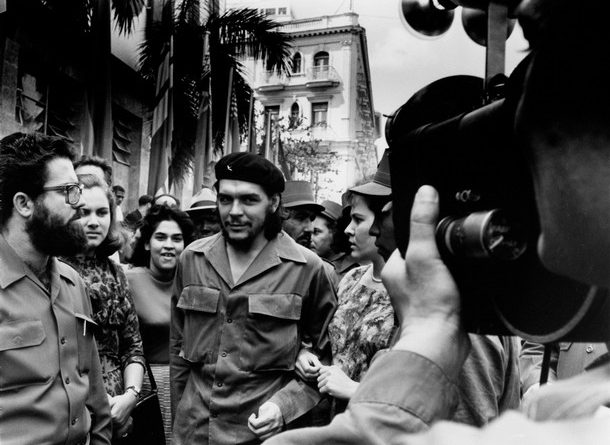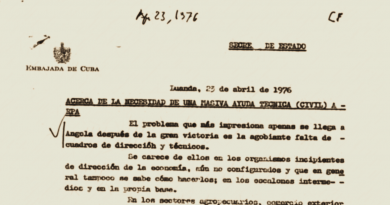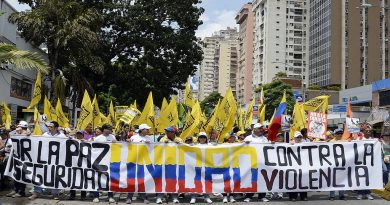“I became a Latin Americanist for life”
Dirk Kruijt, Professor Emeritus of Development Studies at Utrecht University, and researcher at CEI-IUL, was interviewed by E-International Relations to comment his academic and personal path. Kruijt, also explains briefly how Guerrila’s movements changed over time and their influence over the Latin American governments.
Dirk Kruijt, who has alternated his career between academia and development assistance, is Professor Emeritus of Development Studies at Utrecht University. He has published on poverty and exclusion, ethnic relations, civil-military relations, military governments and guerrilla movements, and co-authored (with Kees Koonings) six edited volumes on urban violence and armed actors in Latin America. His last two monographs in English are Guerrillas. War and Peace in Central America (London: Zed Books, 2008) and Cuba and Revolutionary Central America. An Oral History (London: Zed Books, 2017). He is currently working on an edited volume about “Latin American Guerrilla Movements: Origins, Evolution, Outcomes”.
Where do you see the most exciting research and debates occurring in Latin American studies today?
Maybe I am somewhat biased because I am inclined to follow my own preferences. There are four ongoing research themes that I currently find most exciting: (1) the debate on ‘Violent Democracy’, a term coined by Arias and Goldstein in 2010, but which was actually initiated in the late 1990s. The book I co-edited with Kees Koonings, Societies of Fear (1999), was one of the earliest publications contributing to this debate, but the first eye opener for many researchers was the ethnographic study on sicarios and structural violence in the slums of Medellín by Alonso Salazar published in 1993. Salazar was a journalist then and later became the city’s mayor. The debate is still ongoing in research centres in Brazil, Central America, Colombia, Venezuela, Mexico, and in American and European universities. (2) The Pink Tide governments, that were the focus of a short-lived academic discussion from the mid-2000s to the mid-2010s, but which have since started to fade away. The Bolivarian Alliance for the Peoples of Our America (ALBA)-government network between Cuba, Venezuela, Bolivia, Nicaragua, Ecuador and six smaller Caribbean island-states is on the wane while the governments in Nicaragua and Venezuela are questionable, to say the least. (3) Migration streams: the seven million Colombian war refugees, the exodus of three million Venezuelans repatriated in other countries in Latin America, the continuous Mexican, Central American and Caribbean exodus, and its political effects in the guest countries. It is not only a Latin American issue; it also affects the United States deeply. (4) Neo-extractive politics and (indigenous) protest movements. Nearly all countries with native ethnicities suffer from large-scale extraction activities by transnational corporations that signed binding contracts with national governments without explicitly guaranteeing ground rights. These activities contribute to soil, river and air pollution, and lead to disputes about the ancestral and religious significance of land, rivers and mountains. That was the case when I wrote my PhD about the copper and coal mining Cerro de Pasco Corporation in Peru in the 1970s, and it still is. It apparently persists as a generic trait of mineral, oil and gas extraction.
How has the way you understand the world changed over time, and what (or who) prompted the most significant shifts in your thinking?
That is a question about my own evolution. I was trained as a mathematical sociologist and my conceptual baggage was a residue of functionalist theory, then the dominant sociology stream in American and Dutch academia. I started in the late 1960s lecturing methodology at Utrecht University. After two years, the supervisor of my MA thesis asked me to come to Peru, to do the same at the Catholic University in Lima, a private Jesuit elite university. I also lectured at the National University of San Marcos, the public and proletarian university, fifteen years later a hotbed of pre-Shining Path splinter parties.
Read the complete interview at E-International Relations website.
Photo by Alberto Korda / CC-0
The opinions expressed in this blog are solely the authors’ point of view and do not bind the Center for International Studies, its Director or any other researcher.
![]() This work is licensed under a Creative Commons Attribution-NonCommercial-ShareAlike 4.0 International License.
This work is licensed under a Creative Commons Attribution-NonCommercial-ShareAlike 4.0 International License.




